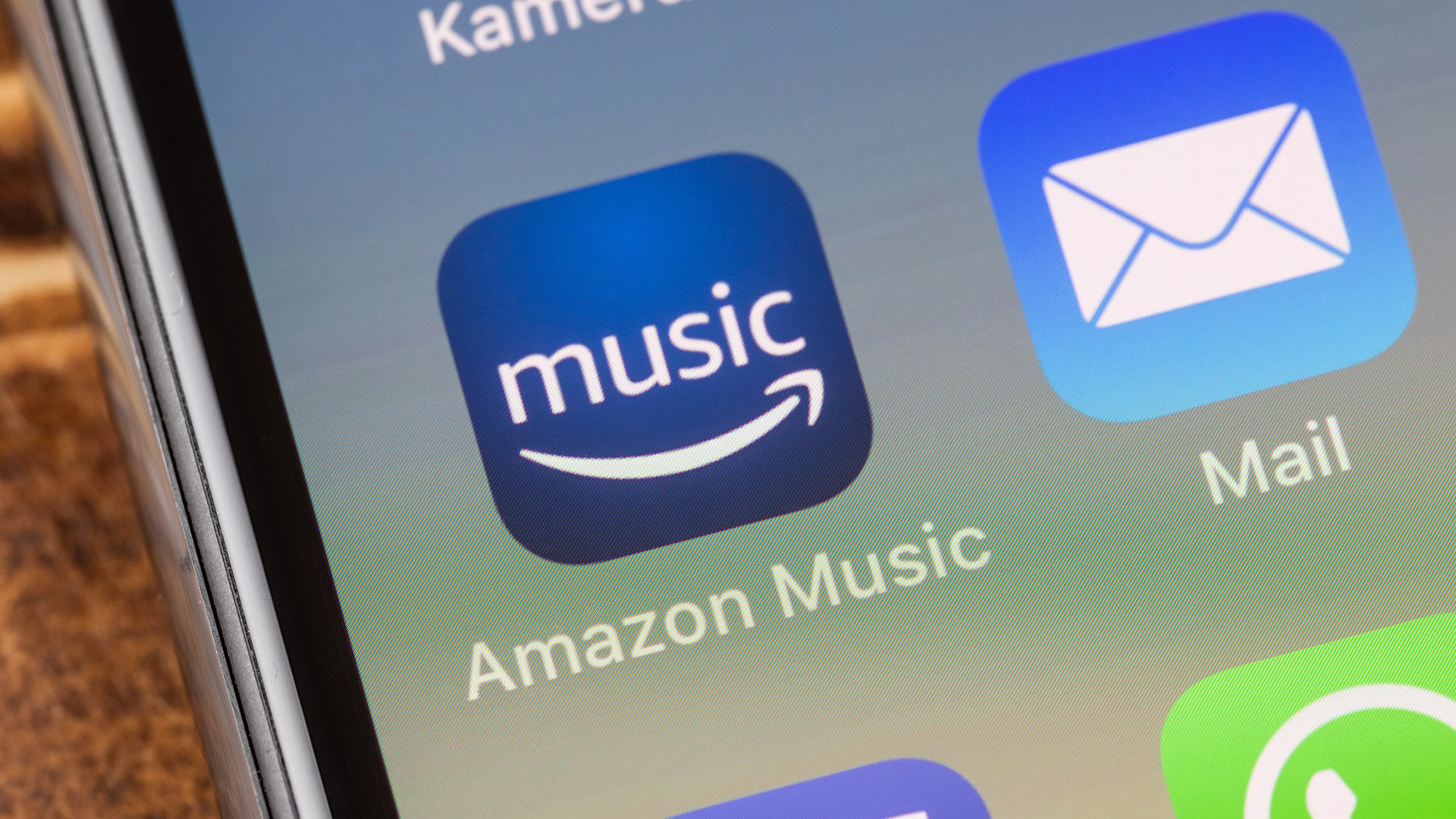Amazon Music users say service is ‘in shambles’ — here’s why
Amazon's recent Music service update causes playback chaos for disgruntled Prime members

Here at Tom’s Guide our expert editors are committed to bringing you the best news, reviews and guides to help you stay informed and ahead of the curve!
You are now subscribed
Your newsletter sign-up was successful
Want to add more newsletters?

Daily (Mon-Sun)
Tom's Guide Daily
Sign up to get the latest updates on all of your favorite content! From cutting-edge tech news and the hottest streaming buzz to unbeatable deals on the best products and in-depth reviews, we’ve got you covered.

Weekly on Thursday
Tom's AI Guide
Be AI savvy with your weekly newsletter summing up all the biggest AI news you need to know. Plus, analysis from our AI editor and tips on how to use the latest AI tools!

Weekly on Friday
Tom's iGuide
Unlock the vast world of Apple news straight to your inbox. With coverage on everything from exciting product launches to essential software updates, this is your go-to source for the latest updates on all the best Apple content.

Weekly on Monday
Tom's Streaming Guide
Our weekly newsletter is expertly crafted to immerse you in the world of streaming. Stay updated on the latest releases and our top recommendations across your favorite streaming platforms.
Join the club
Get full access to premium articles, exclusive features and a growing list of member rewards.
Amazon Music recently made its full library available to Prime members for free, but according to a recent post by Insider, the music streaming service is said to be 'unusable' and in 'shambles' after the ability to select individual songs was removed unless they pay extra.
Amazon Music's expanded offering gives Prime members access to its full music library of 100 million songs and top podcasts ad-free, at no additional cost to their membership. On the face of it, this looks like a win for members who had previously been limited to two million songs as part of their Prime commitment.
But some users are not happy with the expansion to the service and the new playback restrictions that have been applied. These changes have meant that members can no longer listen to songs in the order they want to unless they pay a further $9 per month subscription fee to Amazon Music Unlimited on top of their Prime membership.
One user commenting on Reddit said: "They claim it's a bug but the current app I cannot select songs I have paid for or playlists made up of songs I have paid for. It will play on shuffle with 'similar artists' added and you are limited to 6 skips per hour."
While another said: "I tried it after seeing the "free upgrade" for prime members. And every song I clicked played a slightly different song (often from the same album or artist). Very confusing. Took a little while to figure out what was going on (i.e. I wasn't paying the extra $9)."
As we mentioned at the time of the original announcement, this expanded music library feels like Amazon's latest gambit to get people to cough up $9 per month for Amazon Music Unlimited. Now that you'll be aware of Amazon's full library, you may want to have instant access to any song you want.

Analysis: History repeating
We've already seen controversy when rival music streaming service Spotify restricted the way music fans experienced their favorite artists and playlists, and several artists (including Adele) railed against the streaming service's use of default auto shuffle play button. The outcry asked that it be removed from albums to enable listeners to experience content in the track listing order that the artists and music producers originally intended. Thankfully, Spotify introduced dedicated play and shuffle buttons.
Get instant access to breaking news, the hottest reviews, great deals and helpful tips.
Even though the way we consume music today through services, such as Amazon Music, Spotify, Apple Music, and Tidal, is very different to the analog world that introduced me to music, I firmly believe that an album's running order — thoughtfully put together by the artists and record producers — should be listened to in the order they intended.
I have no objection to anyone skipping tracks they don't like, but I've rarely used any service that enforces shuffle playback, and I hardly ever use shuffle even when listening to a playlist. You see, I've spent so much time putting together mixtapes (remember those?), with carefully curated content for my own personal playback to fit a certain mood or capture a particular time or event, that I really do appreciate the musical journey when tracks fit together in some artistic way. Otherwise, you're waiting for the song you want to play, and that's not really any better than listening to the radio.

Lee was Tom's Guide's audio editor, where he covered all things audio for Tom's Guide, including headphones, wireless speakers and soundbars and loves to connect and share the mindfulness benefits that listening to music in the very best quality can bring. As a former editor of the U.K.'s Hi-Fi Choice magazine, Lee is passionate about all kinds of audio tech and has been providing sound advice to enable consumers to make informed buying decisions since he joined Which? magazine as a product tester in the 1990s. Lee has joined the passionate audio experts at audiograde.uk where he writes about luxury audio and Hi-Fi.
 Club Benefits
Club Benefits










